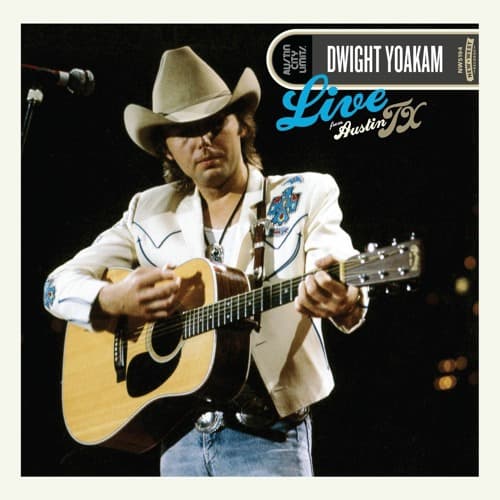
When a Rebel Yell Meets a Classic: “Little Sister” Reimagined
There are certain songs that, regardless of who sings them, carry an undeniable spark, a raw energy that transcends generations. Such is the enduring power of “Little Sister.” And when a true individualist like Dwight Yoakam takes hold of such a classic, he doesn’t just cover it; he inhabits it, infusing it with his own unique Bakersfield swagger and honky-tonk grit. Dwight Yoakam’s electrifying rendition of “Little Sister” was released as a single in February 1987, a standout track from his critically acclaimed second album, Hillbilly Deluxe. The album itself, released in July 1987, was a commercial success, reaching No. 1 on the Billboard Country Albums chart. Yoakam’s “Little Sister” found its own significant success on the charts, hitting No. 7 on the Billboard Hot Country Singles & Tracks chart and even making a mark internationally, reaching No. 3 on the Canadian RPM Country Tracks and No. 35 in New Zealand.
For those of us who came of age with the rebellious spirit of rock and roll, and later found our rhythm in the unvarnished honesty of country music, Dwight Yoakam’s “Little Sister” felt like a familiar friend with a fresh, exciting twist. The song, originally a rock and roll smash for Elvis Presley in 1961, was penned by the prolific songwriting duo Doc Pomus and Mort Shuman. Their original composition was already a vibrant, slightly suggestive tune about a young man’s infatuation with his former girlfriend’s younger sister. Yoakam, however, didn’t merely replicate it. He pulled it into his own orbit, stripping away some of the slick pop sheen of the original and replacing it with a leaner, more urgent country-rockabilly pulse that was entirely his own. This wasn’t an homage as much as it was a reinterpretation, a testament to Yoakam’s genius for making old songs sound brand new and undeniably him.
The meaning of “Little Sister” remains largely consistent across its various incarnations: it’s a playful, slightly mischievous tale of burgeoning attraction and forbidden desire. The narrator, having been burned by the “big sister,” now sets his sights on her younger sibling, who has blossomed from a pigtail-pulling nuisance into a captivating young woman. The lyrics are rife with a charming blend of innocence and budding flirtation, capturing the excitement and subtle defiance of a new crush. “Little sister, don’t you kiss me once or twice / Tell me that it’s nice and then you run / Yeah, little sister, don’t you do what your big sister done.” It’s a plea, a warning, and an invitation all rolled into one, resonating with the universal experience of youthful infatuation and the perennial hope that this time, it will be different. For older listeners, it can certainly bring back fond, perhaps even embarrassing, memories of those first stirs of attraction.
What sets Dwight Yoakam’s version apart, beyond his distinctive vocal delivery, is the way he injected his Bakersfield sound into the very fabric of the song. His signature twang, a blend of traditional country, honky-tonk, and rockabilly, gave “Little Sister” a raw, unpolished edge that perfectly suited the song’s cheeky charm. His phrasing is impeccable, delivering each line with a knowing wink and a palpable sense of longing. Pete Anderson’s guitar work, always a cornerstone of Yoakam’s sound, is sharp and concise, adding crisp, driving riffs that propel the song forward without ever overshadowing the vocal. It’s a masterclass in how to pay respect to a classic while stamping it with an undeniable personal style.
Dwight Yoakam’s “Little Sister” became a beloved part of his live shows and a fan favorite, further solidifying his reputation as a neo-traditionalist who wasn’t afraid to shake up the country music landscape. It’s a song that speaks to the enduring appeal of simple, direct storytelling, backed by music that makes you want to tap your feet and maybe even cut a rug. For those of us who appreciate genuine artistry and a healthy dose of rebel spirit, “Little Sister” remains a vibrant reminder of a time when Dwight Yoakam was at the forefront of a country music resurgence, making the old feel new again, and leaving an indelible mark on our musical hearts.